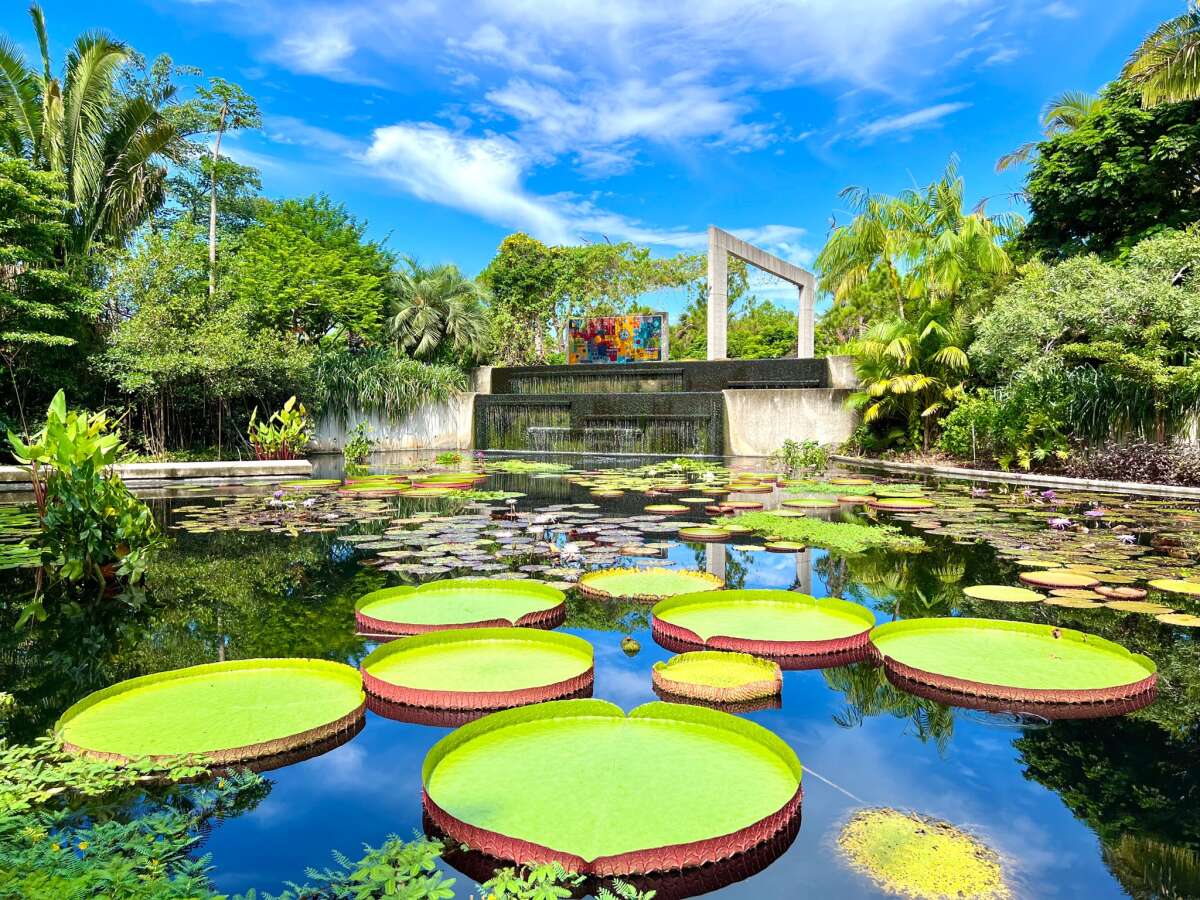Save on Fees and Experience Professional Service
NAPLES
IDEA DRIVEN VACATIONS
Search for Travel Guides, News, Events, Special Interests, and More!
-
Activities and Interests
Uncover fun activities and special interests for your upcoming trip
-
Event Travel
Plan your trip around concerts, festivals, and special events worth traveling for
-
Attractions
Explore top landmarks, scenic spots, and can't-miss local highlights
-
Travel Guides
Navigate each location like a local with our detailed travel guides
-
Travel News
Stay updated with the latest travel trends and vacation rental tips
-
Trip Ideas
Find inspiration for your next getaway with curated trip suggestions and themes
-
Travel Newsletter
Join our newsletter for exclusive travel insights, featured destinations, and trip planning tips
TRENDING
Beaches You Must Visit in Virginia Beach
Virginia Beach Area
Travel Guide
Pawleys Island Festival of Music and Art
September -
Pawleys Island South Carolina
Beaches on Anna Maria Island Florida
Anna Maria Island Florida
Emerald Isle North Carolina Travel Guide
Emerald Isle North Carolina
Planning Biking Vacations
by Deborah Nelson
Naples Botanical Garden

You'll explore Naples Botanical Garden as a hub of sustainable horticulture, established in 1993. Its vision emphasizes the interconnection between diverse plant taxa and soil health, featuring advanced composting and organic amendments. Visit gardens showcasing taxa like Hibiscus rosa-sinensis in sandy loam or Coccoloba uvifera in calcareous soils. Native flora like Serenoa repens thrive in ancestral soil compositions, reinforcing biodiversity. Themed gardens serve as living laboratories, integrating plant taxonomy and soil composition for immersive learning. Immerse yourself in seasonal events, workshops, and more to deepen understanding of this botanical marvel.
History and Vision
The Naples Botanical Garden was founded in 1993 with a vision to create a world-class garden that showcases diverse plant taxa and educates the public on sustainable horticultural practices and soil management. From its inception, the founding inspiration focused on not only botanical beauty but also on promoting sustainability practices crucial for long-term ecological balance.
Over the years, the Garden's historical evolution has seen it morph from a modest project into a leading institution in botanical science. Integrating various soil compositions and plant taxa, the Garden has effectively demonstrated the symbiotic relationship between flora and soil health. You'll find that they've employed advanced techniques in soil management, such as composting and organic amendments, to enhance soil fertility and structure.
Looking ahead, the Garden's future growth is poised to expand its educational programs and research initiatives. This includes ongoing work in plant taxonomy to classify and conserve rare species. You'll appreciate the Garden's commitment to sustainability practices that guarantee minimal environmental impact while fostering an ecosystem where both native and exotic plants can thrive. The Naples Botanical Garden epitomizes a dynamic blend of historical evolution and forward-thinking vision.
Featured Gardens
You're about to explore the Naples Botanical Garden's Featured Gardens, where you'll encounter an array of tropical taxa, from Heliconia rostrata to Musa spp., thriving in nutrient-rich, loamy soils. You'll also find an extensive collection of indigenous species, showcasing Florida's unique flora, with a focus on xerophytic adaptations. Additionally, the Interactive Themed Gardens offer an engaging, hands-on experience, providing insights into plant physiology and ecosystem dynamics.
Tropical Paradise Highlights
Amid the lush landscapes of the Naples Botanical Garden, you'll find an array of meticulously curated tropical gardens showcasing diverse plant categories and soil compositions tailored to each species' specific requirements. Traverse through the Brazilian Garden, featuring species like Hibiscus rosa-sinensis thriving in well-drained, sandy loam, or marvel at the Caribbean Garden with its Coccoloba uvifera flourishing in calcareous soils.
To elevate your botanical experience, the garden offers guided tours and botanical art workshops. Participate in photography classes to capture the vivid colors and intricate textures of tropical flora. If you're seeking a deeper connection, volunteer opportunities abound, allowing you to engage directly with the horticultural marvels.
Each garden demonstrates a unique interplay between plant taxonomy and soil composition, offering an immersive, educational journey through the tropical domains. Engage in hands-on activities or simply wander freely, exploring the botanical wonders at your own pace. The Naples Botanical Garden is more than a haven; it's a gateway to the boundless beauty of tropical ecosystems.
Local Flora Showcase
Having marveled at the tropical splendor, you'll now explore the Local Flora Showcase, where native plant species such as Serenoa repens and Quercus virginiana thrive in their ancestral soil compositions. The showcase highlights the rich plant diversity found in the region, focusing on species adapted to Florida's unique sandy, well-drained soils and subtropical climate.
In this section, you'll encounter meticulously curated displays emphasizing conservation efforts. These efforts are crucial for preserving the genetic biodiversity of native flora, ensuring that future generations can enjoy these botanical treasures. The garden's conservation strategy includes propagation of endangered species and removal of invasive plants, which threaten local ecosystems.
To deepen your understanding, the garden offers horticultural workshops that explore plant taxonomy, soil composition, and sustainable gardening practices. These workshops are part of the garden's broader community outreach initiatives aimed at educating the public on the importance of native plants and their role in the ecosystem.
Interactive Themed Gardens
How do the Interactive Themed Gardens at Naples Botanical Garden integrate plant taxonomy and soil composition to create immersive educational experiences? By meticulously categorizing plant species and analyzing soil profiles, these gardens offer a rich, hands-on learning environment. You'll find that each garden tour is designed to highlight specific plant families and their preferred soil types, fostering a deeper understanding of horticultural science.
During interactive workshops, you can explore different ecosystems represented in the gardens, from tropical rainforests to arid deserts. These sessions include horticultural demonstrations that reveal the intricate relationships between plant taxa and their native soils. For instance, you'll learn how acidic soils support azaleas and camellias, while alkaline soils are ideal for lavender and rosemary.
Hands-on activities allow you to engage directly with the plant material. Whether you're potting a succulent or analyzing soil samples, these activities make complex botanical concepts accessible and engaging. The themed gardens serve as living laboratories where you can practice soil testing, plant identification, and even participate in real-time experiments. This interactive approach ensures that your experience is not just educational but also liberating, empowering you to apply these insights in your own gardening endeavors.
Unique Plant Collections
You'll encounter a diverse array of unique plant collections, including rare tropical species such as Amorphophallus titanum. Native Floridian plants are also prominently featured, specifically those adapted to the region's sandy, well-drained soils. Themed garden areas integrate plant taxonomy principles, showcasing ecosystems like mangroves and pine flatwoods.
Rare Tropical Species
The Rare Tropical Species section of the Naples Botanical Garden showcases an extensive collection of unique plant taxa, such as the rare Titan Arum (Amorphophallus titanum) and the endangered Wollemi Pine (Wollemia nobilis), thriving in meticulously curated soil compositions designed to replicate their native habitats. These rare species are integral to global conservation efforts, with the garden serving as a living laboratory for botanical research and biodiversity studies.
You'll find the Titan Arum's colossal inflorescence, which demands specific soil pH and moisture levels to mimic its Sumatran rainforest origins. The Wollemi Pine, once thought extinct, is nurtured in a soil mix that replicates its ancient, nutrient-poor Australian environment.
To provide deeper insights into these rare tropical species, consider:
- Titan Arum (Amorphophallus titanum): Requires high humidity and well-draining, organic-rich soil.
- Wollemia Pine (Wollemia nobilis): Prefers acidic, sandy loam with good drainage.
- Rafflesia arnoldii: A parasitic plant that thrives on specific host vines.
- Rhododendron sinogrande: Grows best in acidic, rich, and well-aerated soils.
- Nepenthes rajah: Known for its carnivorous nature, it demands a mix of peat moss and perlite.
Native Floridian Plants
Among the unique plant collections, native Floridian plants such as the Saw Palmetto (Serenoa repens) and the Coontie (Zamia integrifolia) flourish in sandy, well-draining soils characteristic of Florida's subtropical climate. These plants are adapted to the high porosity and low nutrient content of these soils, making them essential to local ecosystems. Saw Palmetto, with its fan-shaped fronds, and Coontie, a cycad with pinnate leaves, contribute significantly to the region's biodiversity.
Your exploration of these plants will reveal their important role in conservation efforts. Native species like these are crucial for maintaining wildlife habitats, offering food and shelter to various fauna. The environmental impact of preserving these plants cannot be overstated; they help stabilize soil, prevent erosion, and support the intricate web of life that thrives in these unique habitats.
Themed Garden Areas
Exploring the themed garden areas reveals carefully curated plant collections, including rare species like the Dombeya wallichii in the Frangipani collection and the diverse Heliconia varieties in the Tropical Rainforest Garden. These gardens are designed with precision, focusing on the sustainability of each micro-ecosystem. You'll encounter expert garden design that integrates plant taxonomy and ensures ideal soil composition for each species.
The themed areas promote horticultural therapy and community engagement by offering spaces that are both educational and meditative. As you wander through, you'll notice the thoughtful arrangement of flora, each chosen for its unique contribution to the garden's biodiversity.
- Asian Garden: Features flora like the sacred Nelumbo nucifera (Lotus) and the diverse Bambusa species.
- Brazilian Garden: Showcases the vibrant colors of Tibouchina granulosa and the exotic Erythrina crista-galli.
- Florida Garden: Highlights native species such as Serenoa repens (Saw Palmetto) and Callicarpa americana (Beautyberry).
- Water Garden: Displays aquatic plants like Nymphaea spp. (Water Lily) and Cyperus papyrus.
- Desert Garden: Contains drought-resistant species like Agave americana and Opuntia ficus-indica.
Each garden area is a tribute to innovative garden design principles and a dedication to sustainability, reflecting the Naples Botanical Garden's mission to foster a deeper connection between people and plants.
Seasonal Events
Have you ever considered how Naples Botanical Garden's seasonal events highlight the phenological phases of its diverse flora, adapting activities to align with specific bloom periods and soil nutrient cycles? During the winter months, the garden's holiday festivities are meticulously timed to coincide with the peak bloom of Poinsettias (Euphorbia pulcherrima) and the ripening of winter berries, creating a vibrant backdrop. Summer activities, on the other hand, leverage the flush of tropical flora such as Heliconias and Bromeliads, which thrive in the nutrient-rich, loamy soils that characterize this period.
The garden's annual celebrations are thoughtfully curated to reflect these natural cycles. For instance, the Spring Plant Sale showcases an array of plants at their best planting time, ensuring their successful establishment in local soil compositions. Special exhibitions such as the Orchid Show are synchronized with the flowering period of various orchid species, allowing visitors to witness the full spectrum of their phenotypic diversity.
Educational Programs
Through hands-on workshops and interactive lectures, Naples Botanical Garden's educational programs explore the intricacies of plant taxonomy, soil composition, and sustainable horticultural practices. You'll explore the complex world of plant classification, understanding the minute differences that distinguish species and genera. The horticultural workshops offer practical insights into soil health, teaching you how to analyze and amend soil for best plant growth. Sustainable horticultural practices are emphasized, ensuring you can apply eco-friendly techniques in your gardening endeavors.
The educational programs don't stop at just theory. You can immerse yourself in nature walks that bring the lecture content to life, allowing you to observe plants in their natural habitats. These excursions are designed to deepen your understanding of ecological relationships and conservation strategies.
- Horticultural Workshops: Practical sessions on soil amendment and plant care.
- Botanical Lectures: Expert talks on plant taxonomy and conservation.
- Nature Walks: Guided tours focusing on native flora and sustainable practices.
- Conservation Programs: Initiatives aimed at preserving local biodiversity.
- Interactive Learning: Hands-on activities that reinforce theoretical knowledge.
Visitor Information
While gaining a deeper comprehension of plant taxonomy and sustainable practices, you'll also need practical visitor information to enhance your experience at Naples Botanical Garden. Understanding the intricacies of plant families and soil composition is essential, but so is knowing how to navigate the garden efficiently.
First, let's talk ticket prices. General admission is typically around $20 for adults, though discounts are available for seniors, children, and members. A ticket grants you access to a vast array of ecosystems, each meticulously designed to showcase specific plant taxa and soil types. Whether you're fascinated by xerophytic species thriving in arid soil conditions or prefer the lush biodiversity of tropical rainforests, there's a niche for every botanical interest.
Guided tours offer a more in-depth exploration of the garden's various sections. These tours are led by knowledgeable guides well-versed in plant taxonomy, soil composition, and sustainable horticultural practices. They provide a structured yet liberating way to explore specialized areas like the Brazilian Garden or the Water Garden, enriching your understanding of the intricate interplay between flora and their substrates.
Supporting the Garden
Supporting the garden is crucial for advancing its mission of plant conservation, research, and education. By contributing, you're not only preserving a diverse array of flora but also fostering ecological research and public awareness. The Naples Botanical Garden thrives on meticulous plant taxonomy and ideal soil composition, and your involvement plays a critical role.
You can engage through:
- Volunteer opportunities: Participate in horticultural projects, assist in educational programs, or support conservation efforts.
- Fundraising events: Join community-driven events that generate essential funds for ongoing and future garden projects.
- Community partnerships: Collaborate with local businesses and organizations to enhance the garden's outreach and impact.
- Sustainability initiatives: Advocate for and implement practices that promote long-term ecological health and resource efficiency.
- Membership programs: Enjoy exclusive benefits while directly contributing to the garden's financial stability.
These endeavors guarantee the garden remains a sanctuary for both rare and native species, supported by a community dedicated to sustainable practices. Every action, whether hands-on or financial, directly impacts the garden's ability to maintain its rich biodiversity and educational outreach. Embrace the freedom to explore and support this living tribute to the beauty and importance of botanical diversity.
Vacation Rental Management Companies in Naples Florida

William Raveis - South Bay Team
Since 2003, South Bay has positioned itself as the most knowledgeable real estate brokerage company on Vanderbilt Beach in Naples, Florida. We offer.. learn more
Vacation Rentals in Naples Florida






Additional Naples Articles
Paradise Coast of Florida Travel Guide
Paradise Coast Collier County Area Florida
Naples Florida Vacation Rental Travel Guide
Naples Florida
Artis—Naples Cultural Hub
Naples Florida
















